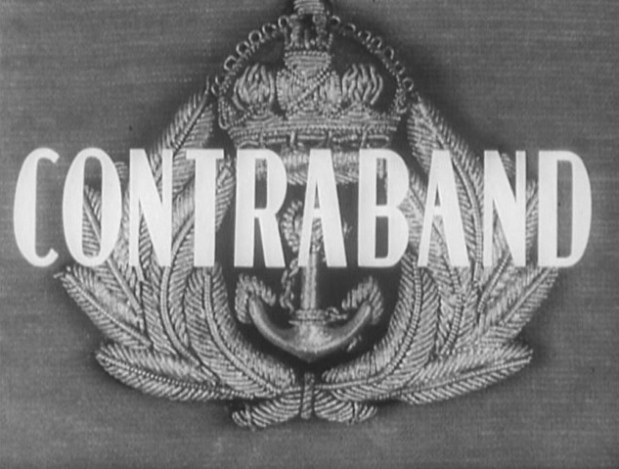
Contraband is a Powell-Pressburger film from 1940 recently released in a film noir DVD box set by Kino. It's not by any sensible definition a film noir
— it's a suspense thriller in the Hitchcock mold, involving wartime
intrigue in the London of the blackout. (Its U. S. title was Blackout.)
As imitations of Hitchcock go, this one is pretty good, as agents and
innocent folk caught up in the adventure chase each other through
improbable locations in the blacked-out city. It displays a lot
of visual wit and cinematic whimsy, and has the usual Hitchcockian
drollery applied to dark and dangerous doings. Indeed, it makes
us aware of how much Powell and Pressburger's work owes to Hitchcock,
especially in terms of attitude.
But it falls far short of Hitchcock in its cumulative effect, and it's
worth examining why. Powell was a great enough director to
analyze and reproduce Hitchcock's tone, his witty use of locations, his
dreamlike progression of narrative incidents. But what he doesn't
do, doesn't seem to realize that he needs to do, is find ways of
implicating the audience in the moral and physical jeopardy of the
protagonists.
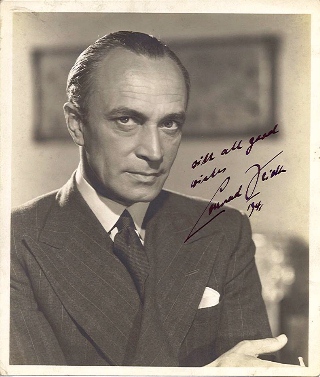
Valerie Hobson and Conrad Veidt, as the leads, are introduced as
interesting and eccentric characters. We might well be curious
about what's going to happen to them, and between them romantically,
but we don't see, we don't feel any of it from their perspective. The
protagonists are introduced through he eyes of subsidiary characters
— a build-up that makes them seem fascinating but distant from us.
This is an acceptable strategy for a standard star vehicle, a romance
or a drama — it doesn't work for a Hitchcockian thriller, in which the
plot incidents are all a bit silly when viewed literally.
Unless we feel responsible for the characters' predicament, identify
intimately with the mistakes and confusion that have led them into it,
the film itself starts to seem silly.
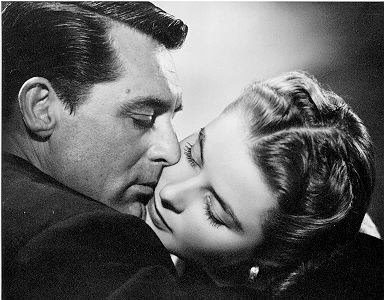
In Notorious, for example,
Grant and Bergman are morally implicated in Bergman's jeopardy — he by
the “duty” which impels him to put her into it, she by the self-hatred which allows
her to be used in that way. The literal jeopardy she finds
herself in thus becomes an objective correlative to an inner turmoil,
an inner conflict — which we experience as well, because we want their
patriotic enterprise to succeed even as we want their romance to
survive it. We are emotionally and morally implicated in the
resulting tension.
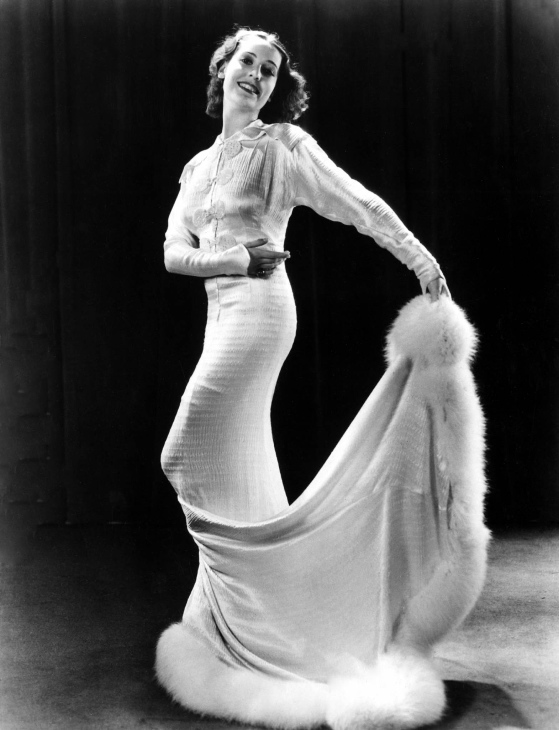
No such inner identification is ever established in Contraband.
Veidt's character is an innocent caught up in a dangerous situation,
but Hobson's character is only indirectly responsible for this.
Veidt and Hobson are both behaving admirably out of pure motives —
their jeopardy is
merely circumstantial, with no moral ambiguity.
The result is that we watch the intricate elaboration of the intrigue
as interested spectators not involved on any deeper level. We
root for the good guys, know they are going to win in the end and feel
only the slightest trace of satisfaction when they do. At the end
of Notorious we feel redeemed. At the end of Contraband we feel, at best, diverted and amused.
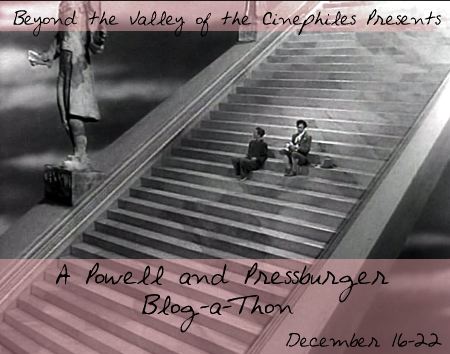
[This post is a contribution to the Powell and Pressburger Blog-aThon hosted by Beyond the Valley of the Cinephiles.]
